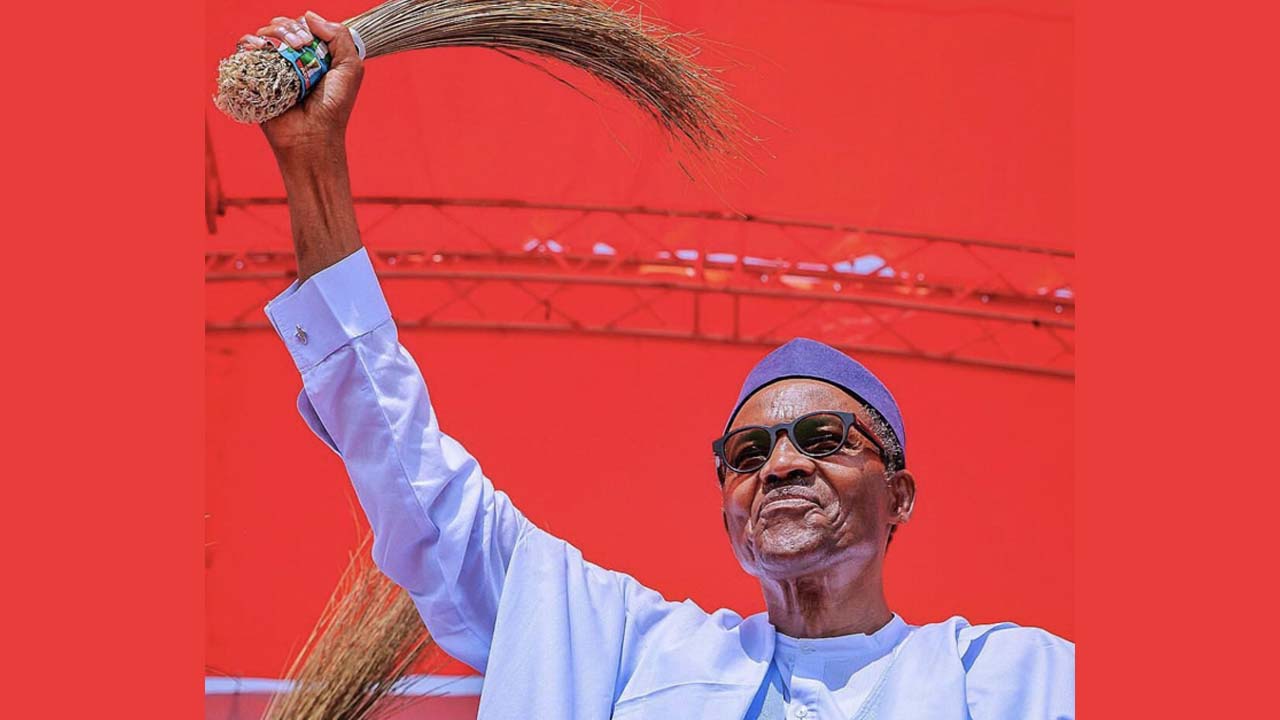
Nigeria’s President Muhammadu Buhari Friday said the country’s chief justice Walter Onnoghen was suspended because of the ‘respect’ his government has for the Rule of Law.
“In line with this administration’s avowed respect for the Rule of Law, I have wholeheartedly obeyed the Order of the Code of Conduct Tribunal dated 23rd January 2019,” Buhari said.
But critics said the president’s move was in violation of the same Rule of Law.
The government dragged Onnoghen before the Code of Conduct Tribunal (CCT) where he is facing a six-count charge of non-declaration of assets.
The president said apart from the “grievous” allegations in the petition against Onnoghen, “the security agencies have since then traced other suspicious transactions running into millions of dollars to the CJN’s personal accounts, all undeclared or improperly declared as required by law.”
He said the suspended CJN’s excuse that the non-declaration was due to mistake and forgetfulness was not known to law.
The trial is the most high-profile since Buhari, whose 2015 election campaign was hinged on his readiness to tackle corruption, became the president.
[related ids=”842987″]
He doubled down on his much-vaunted anti-graft credentials on Friday, noting that government’s decision to sue the country’s most senior judicial officer, has shown that there is no sacred cow.
“Nigeria is a constitutional democracy and no one must be or be seen to be, above the law,” he said.
But with a few of his accused of corruption – including his former secretary to the government of the federation Babachir Lawal – still walking free without any charges preferred against them, Buhari’s claim of being tough on corruption falls flat.
Critics of the government’s move against the top judge said the president wanted to hamstrung the judiciary and put it in a position where it can do the bidding of the ruling All Progressives Congress (APC) in case the outcomes of the presidential elections are disputed.
“This brazen dictatorial act is the latest action in the ongoing rape of our nation’s hard-earned democracy by those who dined with anti-democratic forces,” said Atiku Abubakar, Buhari’s main challenger in the presidential election holding next month.
The opposition People’s Democratic Party (PDP) said Buhari’s decision to suspend Onnoghen “is symptomatic of the increasing desperation that President Buhari and the cabal pulling the strings have as February 16, 2019, draws near.”
A Nigerian lawmaker, Senator Shehu Sani, who like Abubakar was a member of Buhari’s APC, said the government “a tyranny is under construction”.
Moreover, Buhari’s claim of respecting the Rule of Law, critics said, was deceptive, citing his penchant for disregarding orders of the court in the cases involving the leader of the Islamic Movement of Nigeria Sheikh Ibrahim El-Zakzaky and former Nigeria’s security adviser Sambo Dasuki.
“If the head of one arm of your government can unilaterally remove or suspend the head of another arm of your government, your government is not a democracy, it’s an autocracy at best, a dictatorship at worst,” Ayo Sogunro, a lawyer and human rights activist tweeted on Friday.
Joe Abah, a public policy and governance expert, said: “it is clear that the power to suspend rests with the National Judiciary Council, not with the President.”
Abah noted that the National Judiciary Council, headed by Onnoghen, cannot convene a meeting without him calling for it. In that situation, he argued, the tribunal should have directed its order to the NJC that is constitutionally empowered to suspend the CJN.
“An order of the Code of Conduct Tribunal directing the President to suspend the CJN is unknown to the Constitution and cannot be superior to the Constitution. Such an order should have been directed to the NJC, not the President,” Abah said.
Kaduna State governor Nasir El-Rufai, however, insisted that President Buhari did not err by suspending Onnoghen.
“Justice must not give way to legal gymnastics and absurd technicalities,” he said tweeted.
“I am solidly with PMB on this, as always!!”



